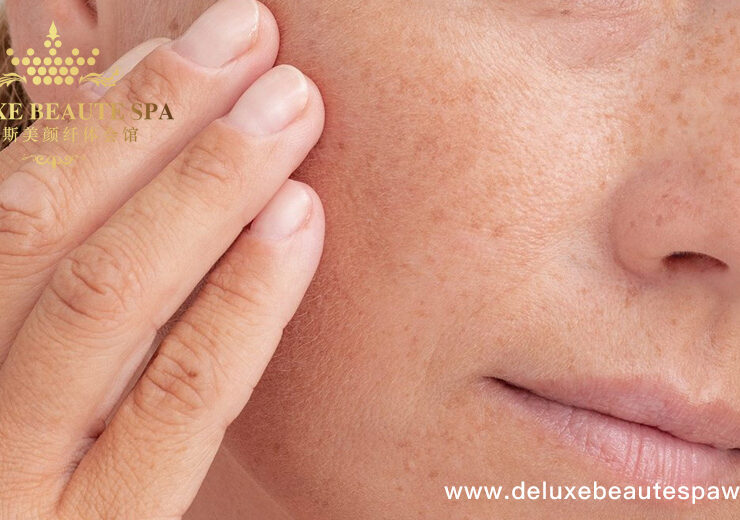Internal factors: natural aging + diet
Natural aging After aging, the body’s dry collagen is lost and the muscle base loses its support, causing the skin to become sunken and sagging from the dermis to the epidermis. Metabolism slows down, sebum is reduced, and the skin becomes fragile, sensitive, dehydrated, dry, and dark. Skin aging phenomena such as dullness and dullness.
Diet: If you consume too much stimulating food, such as coffee, nicotine, fried foods, or have long-term nutritional imbalances, your overall health will deteriorate, and your skin will certainly not get better, and may even become dry, wrinkled, and flaky.
External factors: UV rays + dry environment + incorrect skin care
Ultraviolet rays If the skin is exposed to the sun for too long, in addition to the formation of melanin, ultraviolet rays may also cause damage to the skin. Excessive sunlight will stimulate the formation of free radicals, destroy the protective layer of the face, and cause pigment spots, wrinkles and other conditions on the skin.
Dry environment: Staying in a dry environment for a long time will cause gaps in the epidermis, causing moisture loss. Dryness can also remove collagen and damage the elastic fibers of the dermis.
Wrong Skin Care Many people are used to washing their face vigorously, thinking that the harder they wash, the cleaner their face will be. However, the skin is very sensitive and delicate. Rubbing it too hard and frequently may actually cause brown pigmentation in the skin.
Misconceptions about anti-aging
1. Anti-aging skin care products can reverse aging
Skin care products can only improve skin condition and slow down aging, but they cannot completely reverse wrinkles and aging. Only prevention and maintenance are the key.
2. The higher the price of skin care products, the better.
The most important thing when choosing skin care products is not to look at the price, but to choose skin care products that are suitable for each person’s skin type. Otherwise, you will be adding burden to your skin. You should choose products that contain ingredients supported by scientific evidence.
3. Start anti-aging only when you have wrinkles
The essence of anti-aging is skin care. Everyone should pay attention to skin health regardless of age. Young people who start anti-aging care early can effectively prevent and slow down the signs of aging.
Anti-aging skin care tips
1. Eat a balanced diet
The seven major categories of nutrients needed by the human body include carbohydrates, proteins, fats, minerals, vitamins, trace elements, and water, and each nutrient must be complete. Avoid excessive intake of stimulating and glycated foods. You can consume more foods containing collagen, fruits and vegetables containing high vitamin C, and try to use simple cooking methods such as steaming and boiling.
2. Regular work and rest
Don’t stay up late. Lack of sleep is the most likely to cause fatigue. It will also hinder the skin’s production of collagen, which can easily lead to dryness, dullness and other conditions. Maintain 8 hours of sleep every day to allow the skin to rest and recover.
3. Moisturizing work
Moisturizing is the basis of skin care. Insufficient maintenance will lead to skin dehydration, which will not only make the skin look rough, peeling, and dull, but in the long run will easily cause the skin to be damaged and unable to absorb any skin care products. Only when moisturizing is done well can the keratin metabolism be normal and the skin barrier function normally.
4. Sun protection
The most important thing is sun protection, sun protection, sun protection! Ultraviolet rays are very damaging to the skin. Try to avoid sun exposure and wear sunscreen, sunscreen umbrellas, and sun-protective clothing. Sun protection is the first step in anti-aging.









